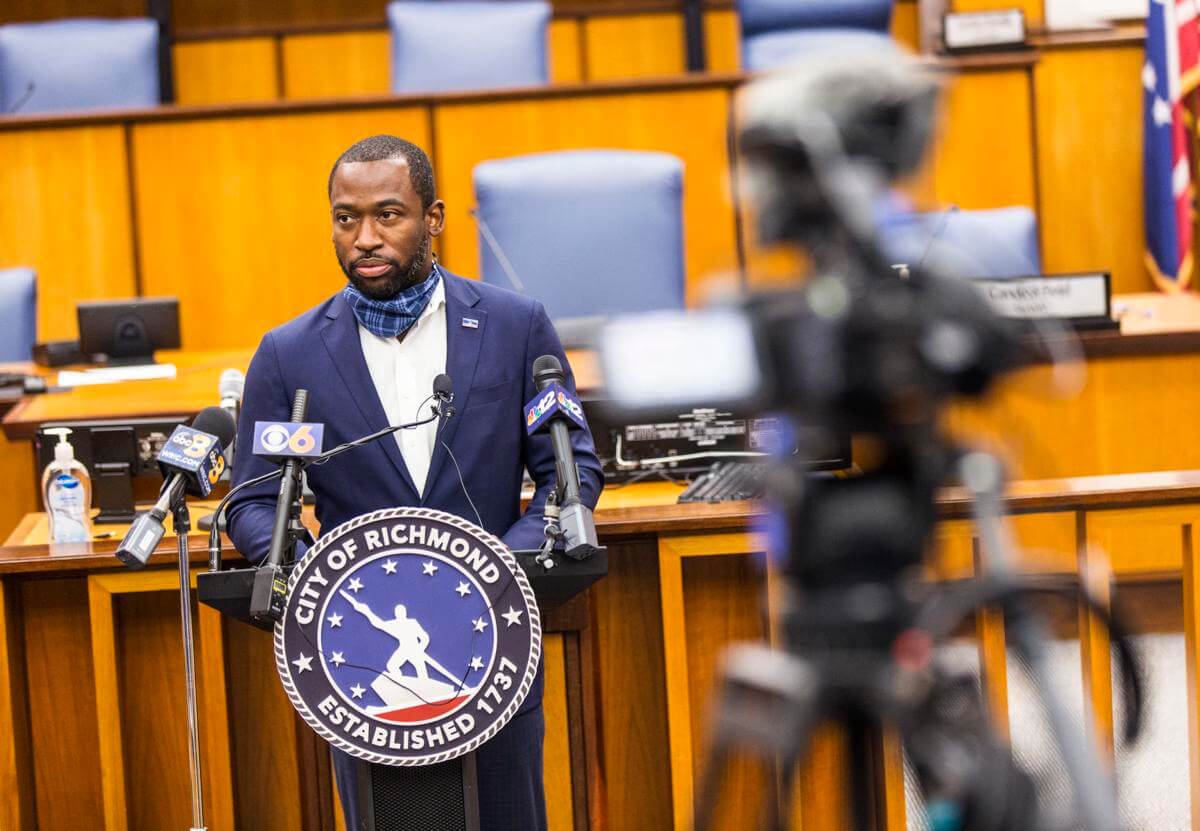
By
In a Zoom conference call with more than 430 participants Monday evening, Richmond Mayor Levar Stoney and three City Council members committed to boosting annual funding to address housing insecurity in the city to $10 million, from $2.9 million this year.
In a briefing before the meeting, Richmonders Involved to Strengthen Our Communities (RISC) leaders told the virtual assembly not to back down from demanding that the city do more to create housing for people in need and to prevent gun violence.
“We are not creating the tension. We are seeking resolution,” said Dorothy Hollahan, an organizer with the faith-based advocacy group that hosted the meeting. “It may be uncomfortable but we suffer that discomfort on behalf of our brothers and sisters who are experiencing these horrific situations.”
Hoping to meet those goals, the interfaith coalition of leaders from 22 congregations in the area asked city leaders to create a dedicated funding stream for the city’s Affordable Housing Trust Fund and to partner with the National Network for Safe Communities on a gun violence prevention program.
Stoney and council members Stephanie Lynch, Ellen Robertson and Andreas Addison all agreed to the housing commitment. Stoney said he would continue to study National Network’s program and discuss the idea with RISC leaders, but did not commit to the group’s request for his administration to enter into a preliminary six-month contract with the National Network, based out of John Jay College in New York City.
The faith group said the violence reduction program is malleable based on the needs of each community that works with the organization. Stoney, however, said he has heard concerns from officials and activists about heavy handed tactics and excessive surveillance in other cities that adopted the program. “I have worries about the drawbacks,” he said.
The Rev. Ralph Hodge, pastor of Second Baptist Church in Richmond, said the group was disappointed with the mayor after officials noted that homicides in the city have been increasing in recent years.
There have been 31 homicides this year as of Sunday, according to Richmond police. That’s eight fewer deaths than at the same point last year, but a recent uptick in shootings and the young age of several victims in recent years has raised concerns.
In May 2019, nine-year-old Markiya Dickson died after she was shot during a Memorial Day cookout in South Richmond’s Carter Jones Park. Earlier this month, police said a two-year-old was wounded after a shooting in Whitcomb Court in the city’s East End.
Despite the disagreement over policing reform, an idea the city is already considering as nationwide protests against police brutality and racial injustice continue, Stoney and the council members said they would work with RISC to address housing insecurity.
In January, the Partnership for Housing Affordability determined the region would need to build 1,000 new affordable homes annually to meet demand by 2040. Only a quarter of that has risen annually over the past five years, according to a report the group released earlier this year.
Since July 1, 2014, the city has allocated $4.9 million from its affordable housing fund to developers and community organizations to aid housing efforts and related community services. The top priority of the fund is to assist people with sustainable, affordable housing who are elderly, disabled, homeless or survivors of domestic abuse.
But members of RISC and other activists said the aid has been insufficient for households making the least amount of money.
“The trust fund has been underfunded and not strategically targeted toward those most in need,” the group said last week.
Housing advocates with RISC noted that a report from Housing Opportunities Made Equal of Virginia earlier this year indicated a need for 25,000 more affordable housing units for households making less than 30% of the area median income — which is equivalent to $26,800 for a four-person household, according to the state’s housing authority.
In addition to setting aside more money for the fund, the clergy group also asked city officials to commit half of the fund’s dollars to help build homes for households below the 30% threshold.
“We don’t care how it gets done, we want it to be created,” Hodge said.
Source: Richmond.com
